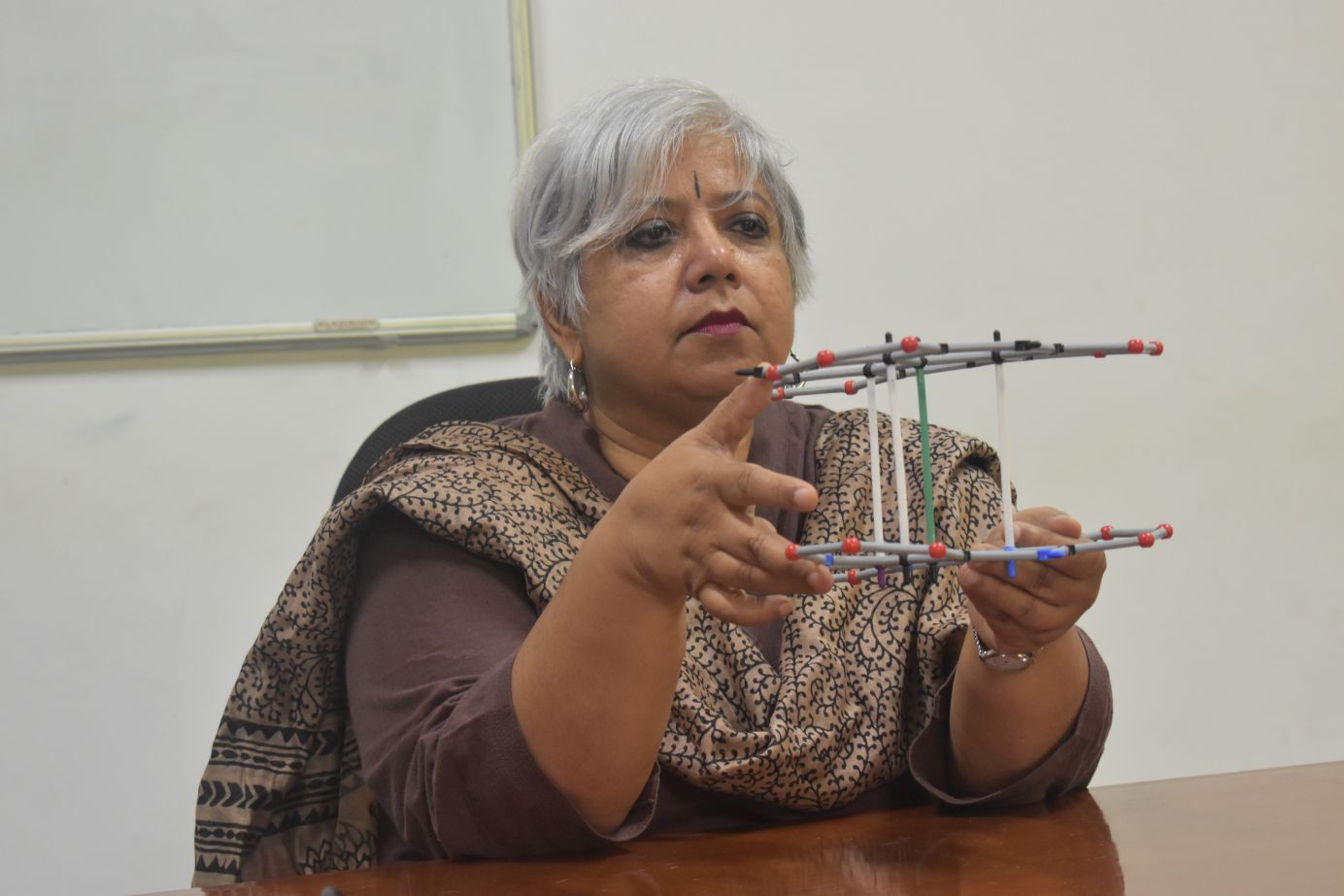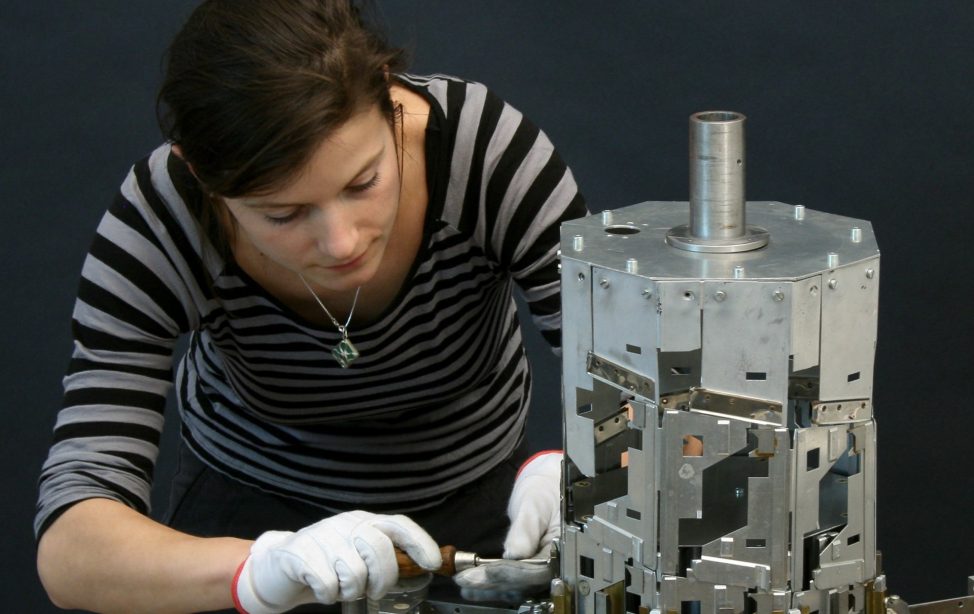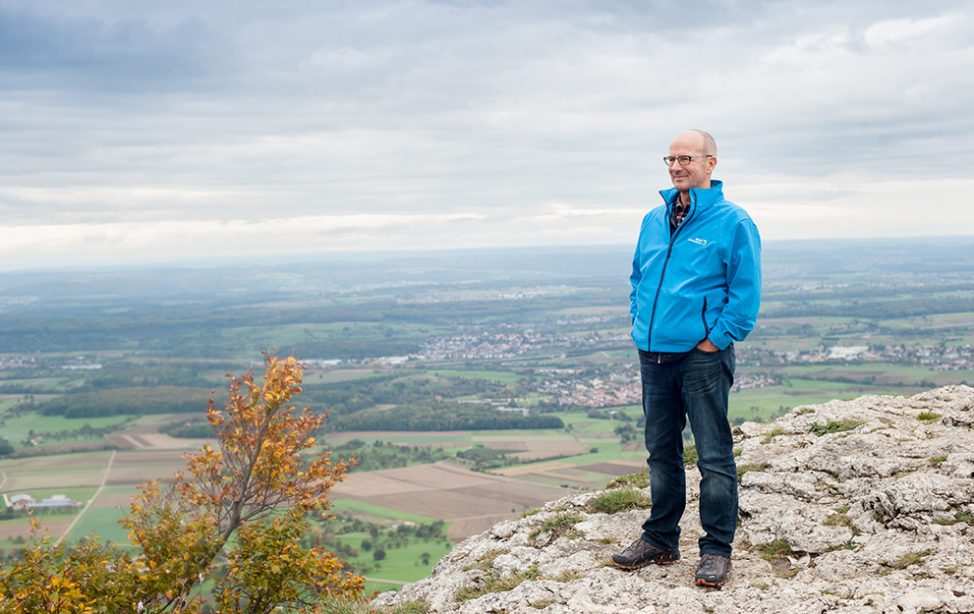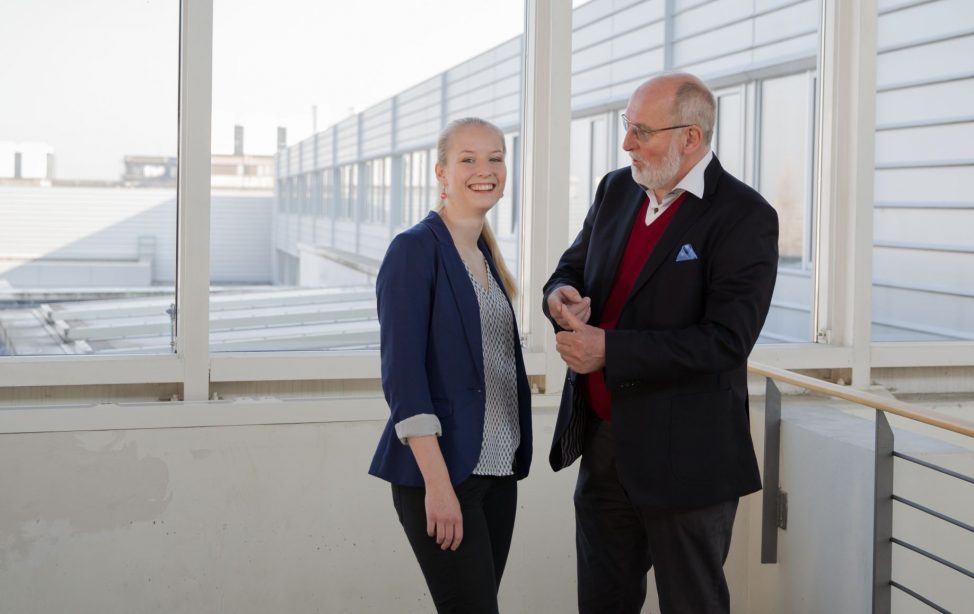
TUM Ambassador Shobhana Narasimhan (Picture: Private).
Shobhana Narasimhan did not like physics in her childhood. She was interested in English literature. But when she was asked to create a radio program about Einstein as a teenager, this changed abruptly. “I was immediately captivated by quantum mechanics and the theory of relativity,” she recalls. “I’ve been fascinated by theoretical physics ever since.”
DOUBLE BENEFIT
After completing her degree in Physics at the Indian Institute of Technology in Bombay, Shobhana Narasimhan went to Harvard University in the USA. There she discovered the field in which she is now an international leader: computational nanoscience. Since 1996 she has been Professor of Theoretical Sciences at the Jawaharlal Nehru Centre for Advanced Scientific Research in Bangalore, India.
Our aim is to help women build a support network for their future.
VALUABLE NETWORK
Shobhana Narasimhan drew great personal and scientific added value from her time as an Anna Boyksen Fellow at TUM-IAS from 2020 to 2023. She owed her research stay not least to her large international network. Eva Sandmann, TUM’s Gender Equity Officer, and TUM Professor Johannes Barth – the discoverer of the herringbone structure of the gold(111) surface, whose theoretical explanation once drew the attention of experts to Shobhana Narasimhan – had encouraged her to apply for the research fellowship. Since meeting in Berlin in the 1990s, the two top scientists have remained in contact and decades later were able to conduct research together again – this time at TUM.
In physics, Johannes Barth’s group was able to gain a better insight into nanosystems together with Shobhana Narasimhan and her four students. The collaboration in the focus group ‘Building Bridges to Promote Gender Inclusivity in Science’ was also successful. With Eva Sandmann they organized a workshop on the topic of “Women in Science in Developing Countries”. This brought together female scientists from Germany and all over the world at TUM. “We supported the women in establishing contacts and collaborations at TUM,” explains Shobhana Narasimhan. “Our aim was to make students and scientists at TUM more aware of how women in developing countries are doing fantastic work despite facing challenging circumstances, and to help build bridges between the TUM community and women in science everywhere.”
COMMON LANGUAGE
Shobhana Narasimhan has been working towards equality for years. “I strongly believe in equality, be it between genders, nationalities, religions or castes,” she says. ”I also believe in science as a force of rationalism, universalism, enlightenment and justice that can have an equalizing effect.”
Before her stay at TUM, Shobhana Narasimhan experienced that collaboration between research groups from Europe and India is not as common as one would like.“ I am very pleased that Johannes Barth and TUM agree that interesting science knows no borders and can also emerge from developing countries,” she emphasizes. For Shobhana Narasimhan, this internationality is one of the many advantages of science. “There may be cultural differences, but we share the common language of science. I am happy to have friends and colleagues at TUM – and all over the world.”

TUM Ambassador Shobhana Narasimhan (Picture: Private).
TUM Ambassador 2024
Shobhana Narasimhan holds a Master’s degree in Physics from the Indian Institute of Technology in Bombay, India, and a Master’s degree and PhD from Harvard University in the USA. Since 1996 she has been Professor of Theoretical Sciences at the Jawaharlal Nehru Centre for Advanced Scientific Research in Bangalore, India. She teaches solid state physics and density functional theory worldwide, with a special focus on Africa. She has been a visiting scientist at numerous institutions, including the University of Cambridge and the Université de Paris-Diderot. From 2020 to 2023, she was an Anna Boyksen Fellow at TUM-IAS.
Shobhana Narasimhan is an International Honorary Member of the American Academy of Arts and Science and a Fellow of the American Physical Society. She has served on several national and international committees for the advancement of women in science, including IUPAP and the Government of India. Since 2013, she has been conducting workshops on career development for women in physics at the Abdus Salam International Center for Theoretical Physics in Trieste, Italy, and at the ICTP-EAIFR in Kigali, Rwanda. In 2024, she will be honored by TUM President Thomas F. Hofmann as a TUM Ambassador for her remarkable and wide-ranging commitment.


